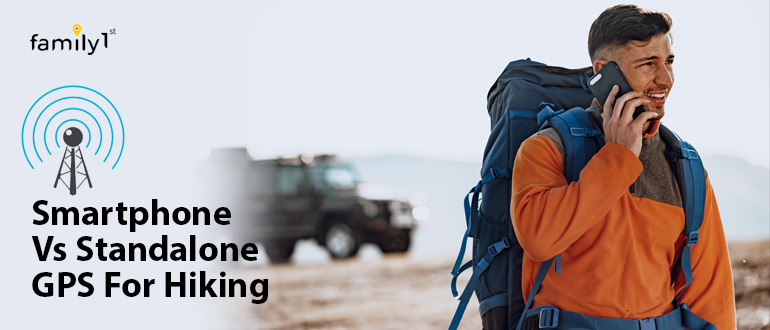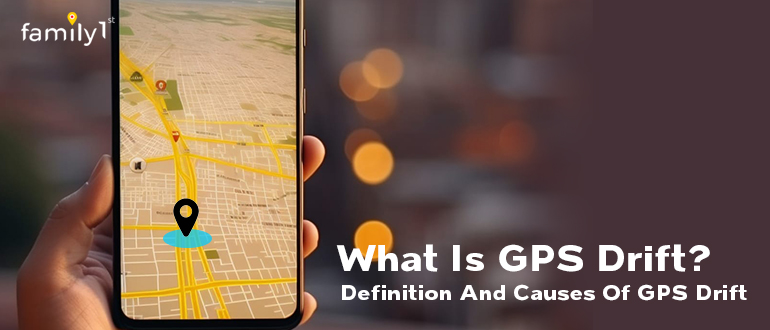A nature lover is always ready to explore. And what better way to do it other than hiking? But before you head out, you need to decide: do you take your smartphone with you for GPS tracking or opt for a dedicated standalone GPS device?
Your smartphone, a versatile gadget, effortlessly handles music, photos, and cute cat videos. It’s like our constant companion these days. On the other hand, the standalone GPS is built for navigating tough terrain.
Think about it: do the best hiking places like Glacier National Park, Mammoth Lakes, or the famous Hawaii attraction attract you? We get you. But do you fear being lost? Well, we get that too. Therefore, we explore the varied features of GPS tracking gadgets, focusing on simplicity, durability, battery life, and accuracy.
This blog on smartphone vs. GPS hiking trackers will reshape how you see hiking gear. Ready? Let’s get into this head-to-head comparison and find the one who will be your go-to hiking buddy.
Table of Contents
What are the features of smartphone GPS tracking for hiking enthusiasts?
Here’s how it works: Your phone becomes your virtual compass, precisely pinpointing your location on a map. It’s as though you are on a hike in the forest, and your phone’s telling you, “You’re right here; stay on this path!”
With digital maps, you can confidently navigate even unfamiliar terrain. Think of it as having a personal hiking expert who knows all the trails, right there in your hand. It can also track your progress, calculating the distance you have covered and your walking speed. In case of emergencies, your phone becomes your lifeline. Many GPS apps have SOS features, so if you ever need it, help is just a tap away.
So, with smartphone tracking for hikers, your hiking adventures are just safer, more fun, and packed with endless possibilities, all within the convenience of your phone.
But then, do you even need a standalone GPS tracker? Yes, and we will tell you why.
What are the features of Standalone GPS tracking for hiking enthusiasts?
Standalone GPS hiking trackers work like a digital compass for hikers. They connect to satellites, similar to how your phone receives a signal. These devices communicate with satellites in the sky, much like having a conversation. The Family1st portable GPS tracker is akin to having a reliable hiking buddy that keeps you on track.
Past Track Record
Standalone GPS hiking trackers save records so that you can revisit all those fond memories. It also ensures that you can track the routes you have already visited.
Weather Updates
We all know how important it is to know the weather before starting our adventure, right? It’s like having a mini-meteorologist by your side. Before you head out, you’ll know if it’s time for sunglasses or a rain jacket.
SOS for Emergencies
Since emergencies don’t follow a routine, standalone GPS trackers come to our rescue by sending immediate SOS signals, ensuring that help comes in time. It ensures that we are safe in an unknown location.
Long battery life
On a long hiking trip, you do not want to worry about your device running out of battery on the trail. Many standalone hiking trackers have impressive battery life. For example, it can last all day and still have a battery for your nighttime adventures.
Smartphone GPS vs Standalone GPS Trackers
| Features | Smartphone GPS | Standalone GPS |
| Ease of Use | User-friendly and familiar. Most people already own smartphones, so no additional device is needed. | A dedicated device might require a learning curve but offers specialized features for navigation. |
| Battery Life | Limited, especially when using GPS intensively, which can drain the smartphone quickly. | Longer battery life, designed for extended outdoor use, providing peace of mind on long hikes. |
| Durability | Smartphones are delicate; they don’t handle rough conditions or accidental drops well. | Rugged and built to withstand harsh outdoor environments, making them suitable for adventurous terrain. |
| Signal Strength | Reliant on cell signal, making remote or off-grid areas problematic if you are out of range. | Independent of cell signal, maintaining functionality even in remote or isolated locations. |
| Safety Features | Smartphone apps may have SOS or location-sharing features, but they rely on a cellular signal. | Many standalone GPS devices offer dedicated SOS buttons, enhancing safety in remote areas where cell signal is absent. |
| Cost | Typically no additional cost, as most people already own smartphones. | Initial investment is required to purchase a standalone GPS device, plus potential subscription fees for premium mapping services. |
Problems with smartphone GPS
Shocking statistics show that the activities with the highest rate of people getting lost are 48% for hikers and 21% for boaters. One thing is evident: we need to be extremely cautious while exploring nature.
While our smartphones are very accessible and handy, using smartphone tracking is not a reliable tool to consider while hiking. Here’s why:
Battery Drain
Smartphones tend to have limited battery life, and using GPS intensively can quickly deplete their power. It puts you at risk of being stranded without communication or navigation capabilities.
Fragility
Unlike rugged standalone GPS devices, smartphones are delicate and prone to damage, especially in challenging outdoor conditions. A drop or exposure to harsh weather can render them useless.
Signal Dependency
Smartphone GPS relies on a cellular signal, which can be unreliable or nonexistent in remote or mountainous areas. If you lose signal, your navigation becomes ineffective.
Inaccuracy
While suitable for basic navigation, smartphone GPS can sometimes lack the accuracy crucial for precision-oriented activities like geocaching or nature navigation.
Distractions
Smartphones offer a variety of functions beyond GPS, such as calls, texts, and social media. These distractions can divert your attention from the trail, potentially leading to wrong turns or accidents.
Network Connectivity
Although offline maps are available, they often require advanced downloading and consume storage space. Depending on them can limit your device’s overall functionality.
The Solution: Standalone GPS Hiking Trackers
Now it’s clear that standalone GPS hiking trackers are a viable solution. Family 1st portable GPS tracker is the best solution for hiking, providing accurate results and assured safety.
Hikers are always eager to explore new places. So, they need something that makes it a completely stress-free experience for them. While smartphone tracking for hikers is quite accessible, it does not guarantee accuracy or protection from distractions. On the other hand, standalone GPS devices offer the following benefits:
Specialized Features
Standalone GPS devices often come with specialized features tailored for outdoor activities, such as altimeters, barometers, and compasses, providing valuable data for hikers, campers, and geocachers. These features enhance the outdoor experience, which is typically unavailable on standard smartphones.
Reliability in Emergencies
Standalone GPS trackers often come equipped with dedicated SOS buttons or emergency features, providing a quick and efficient way to call for help or share your precise location with rescue services in challenging situations, offering a crucial safety advantage over smartphones.
Enhanced Durability
Standalone GPS devices are built to withstand rugged conditions and accidental drops, making them more durable in the great outdoors compared to fragile smartphones. You will be amazed to see how these little devices exhibit the same enthusiastic compatibility with rough terrain, just like you do.
Offline Mapping
These devices frequently offer extensive offline map support, allowing you to access detailed maps in areas with poor or no cellular signal. This feature is especially advantageous for remote hiking locations where smartphone maps may not be accessible. Family1st trackers are efficient at saving lives.
Conclusion
Now it’s clear that Standalone GPS hiking trackers emerge as the winner. The reasons are simple: durability, simplicity, and reliability.
Hiking terrain is often tough and rugged. The possibility of emergencies cannot be ignored. What if your smartphone suddenly displays ‘No Service’? It would make navigation extremely challenging while hiking. When all the paths and routes look the same, we might become disoriented. Therefore, we need a device we can trust blindly.
At Family1st, we are always prepared to guide you and provide the best services. Our portable GPS tracker helps you navigate the hiking environment with ease. Choose to have peace of mind and connect with nature without the fear of becoming lost.
Schedule a call with us to learn more about the portable GPS tracker.









Next
Previous